Starting the day with health news , readers can also read more articles: Notes when choosing milk for people with chronic diseases; Should you eat less at dinner to protect your health?; Walking techniques researched from Japan are very good for the elderly...
4 ways to cook eggs without losing nutrients
Eggs are a nutritious food, containing high-quality protein, essential vitamins such as B12 and D, and minerals such as selenium and choline. However, the way they are prepared can significantly affect the retention of these nutrients.
Some vitamins and nutrients in eggs are heat-sensitive. Therefore, cooking eggs at high temperatures or for too long can reduce the amount of these vitamins or even create harmful compounds.
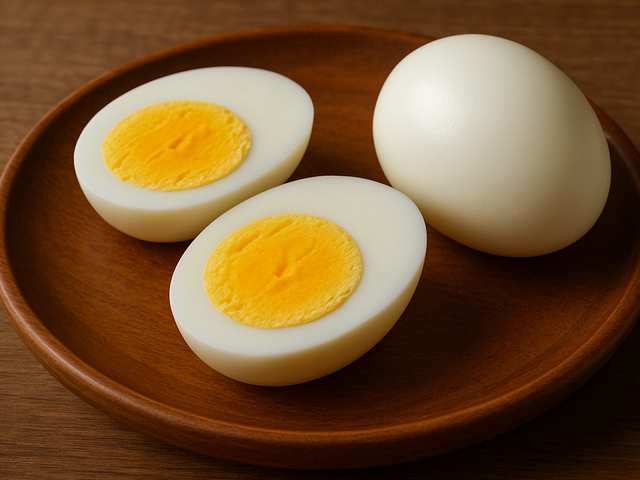
Boiled eggs should not be boiled for too long because it can cause loss of nutrients.
PHOTO: AI
To retain maximum nutritional content in eggs, everyone should apply the following egg processing methods:
Poaching. Poaching involves cooking eggs in water heated to between 160°F and 170°F, which is just below the boiling point. This slow, gentle cooking method helps retain heat-sensitive vitamins like B12 and folate. Poaching without added fat is great for heart health.
To poach an egg, first heat water to 71°C to 82°C, stir the water gently with a spoon to create a swirl, then crack the egg into the center of the pot. Cook the egg for about 3-4 minutes until the white is set, while the yolk is still slightly runny. This method retains nutrients while giving the egg a smooth texture and rich flavor.
Boil eggs. Boiling is probably the simplest way to prepare eggs, and it also helps retain nutrients very effectively. Hard-boiled eggs take about 9-12 minutes, while soft-boiled eggs only take 4-6 minutes.
Avoid boiling for too long as this can create a green ring around the yolk. This green ring is due to the accumulation of ferrous sulfide, which is not toxic but is a sign that the egg has lost its nutrients. To prevent overcooking, remove the eggs immediately after boiling and place them in ice water. The next content of this article will be on the health page on April 18 .
Walking techniques researched from Japan are very good for the elderly.
Walking is one of the best, low-intensity, easy forms of exercise that almost anyone can do, regardless of age.
Walking has many benefits, from toning your legs, being good for your heart, lowering blood pressure, improving digestion, and reducing anxiety, depression, and weight.
In particular, there is a unique Japanese way of walking that helps older adults reap more benefits.
This method was developed by researchers at Shinshu University in Japan as an exercise for the elderly, especially to combat muscle weakness and improve physical fitness. Although it seems simple, it is surprisingly effective, especially for the elderly .
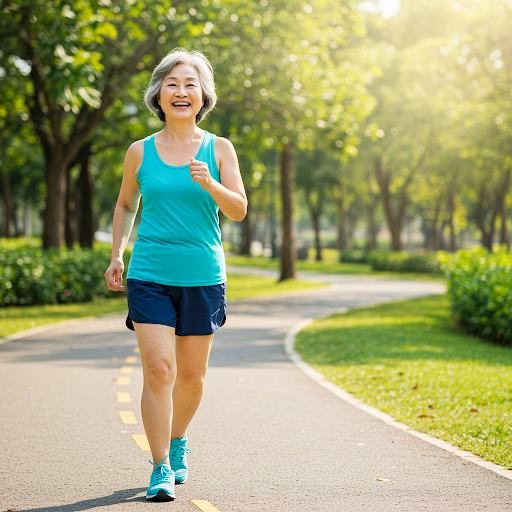
There's a Unique Japanese Way of Walking That Helps Seniors Reap More Benefits
Photo: AI
It is interval walking training (IWT), a walking style that combines moderate walking and brisk walking, aimed at improving fitness and reducing symptoms of lifestyle diseases. In people with type 2 diabetes, IWT directly improves blood sugar control.
A typical IWT session involves alternating between:
- 3 minutes of brisk walking - as fast as you can without running (at least 70% aerobic capacity).
- 3 minutes of moderate walking, meaning brisk but comfortable (about 40% of aerobic capacity).
Repeat the above cycle for 30 - 60 minutes. The next content of this article will be on the health page on April 18 .
Should I eat less at dinner to protect my health?
Experts say eating too much food at dinner is an unhealthy habit.
The adage “Eat breakfast like a king, lunch like a prince, and dinner like a pauper” has been around for decades and is considered good advice by experts. Marta Garaulet, a physiology professor at the University of Murcia in Spain, says scientists are still studying how portion sizes and meal timing can affect health. But one thing they know for sure is that it’s best to avoid making dinner the biggest meal of the day.
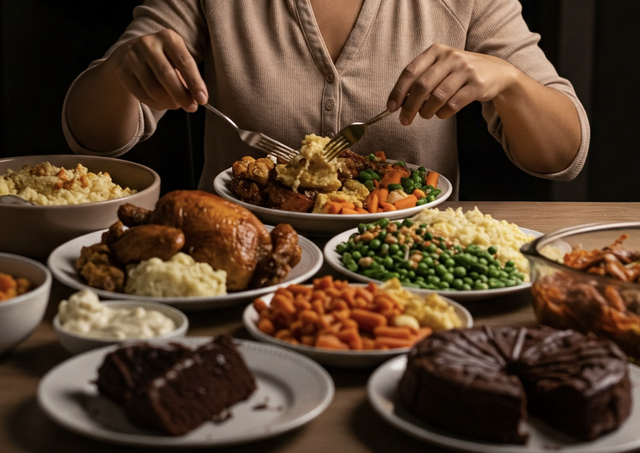
Eating too many calories at dinner is not good for your health.
Photo: AI
Specifically, existing research shows some consistent links. People who consume large amounts of high-calorie foods at dinner tend to have higher rates of obesity, type 2 diabetes, high blood pressure, and higher levels of inflammation.
The reason may be due to the body's biological clock. In the morning, the body is ready to absorb and metabolize nutrients best. When it gets dark, organs such as the liver and pancreas work more slowly, leading to higher and longer blood sugar levels after dinner. The hormone melatonin in the evening also inhibits insulin, making it difficult to control blood sugar. Start your day with health news to see more of this article!
Source: https://thanhnien.vn/ngay-moi-voi-tin-tuc-suc-khoe-cach-che-bien-trung-giu-duoc-nhieu-dinh-duong-nhat-185250418005955582.htm


![[Photo] General Secretary To Lam meets and expresses gratitude to Vietnam's Belarusian friends](https://vphoto.vietnam.vn/thumb/1200x675/vietnam/resource/IMAGE/2025/5/11/c515ee2054c54a87aa8a7cb520f2fa6e)


![[Photo] General Secretary To Lam arrives in Minsk, begins state visit to Belarus](https://vphoto.vietnam.vn/thumb/1200x675/vietnam/resource/IMAGE/2025/5/11/76602f587468437f8b5b7104495f444d)




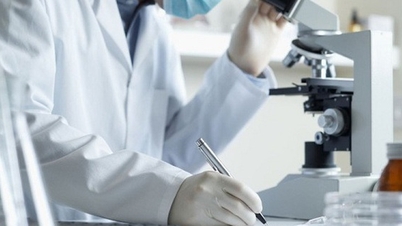


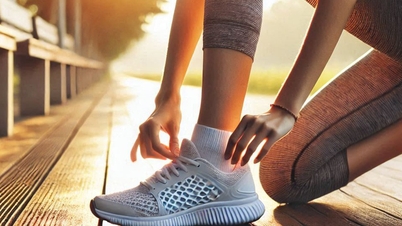











![[Photo] General Secretary To Lam concludes visit to Russia, departs for Belarus](https://vphoto.vietnam.vn/thumb/1200x675/vietnam/resource/IMAGE/2025/5/11/0acf1081a95e4b1d9886c67fdafd95ed)




































































Comment (0)